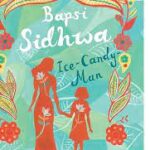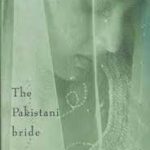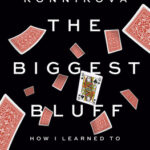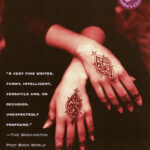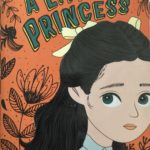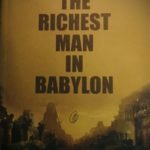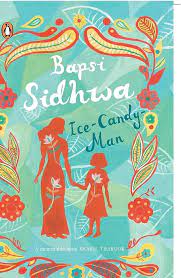This is a book I call an absolutely must read for Pakistani readers especially for those based in Lahore. Although it seems to be the writer’s own story of her childhood and what she observed and witnessed in Lahore in the years leading up to partition and post partition melodrama. The narration begins with early 40s when she is 4 years old and concludes somewhere two years after the birth of Pakistan when refugees from each side were being exchanged.
The story is narrated by Lenny living on Waris Road in a neighborhood surrounded by Salvation Army, police training academy and her godmother’s house nearby. Being a victim of polio and somewhat handicapped in walking, she is looked after by a Hindu Aya and carried or strolled along to different places. The Aya being a blooming youth of eighteen is desired and harassed by male servants, hawkers, and acquaintances like the masseur, the ice candy man and their circle of friends. The group is a mix of Hindus, sikhs and Muslim who are supposedly friends and hang out together.
Lenny,s world consists of her parents, her younger brother, circle of aunts, uncles, cousins, her godmother with her sibling family friends, and group of servants employed in her home and at her father’s business. In the backdrop of pre-partition drama, her family within the Parsi community remains neutral but in the forefront of affairs. Lenny follows the conversations among the circle of friends which convey the emotions and divisions building among masses based on religius differences. She eavesdrops on the conversation and among guests of her parents which include British and Indian (Sikh)officials making every effort to provoke and pitch Hindus , Sikhs, amd Muslims against each other. Furthermore she closely observes Gandhi on the stage in a public rally with his bizarre preoccupations and advocacies on cleansing of women’s guts, and his hypnotic eyes betraying ominous signals.
The dramatic turn of events leading to gruesome violence in east punjab, in Lahore as witnessed by Lenny along with indifference of the leaders are very disturbing to the reader. The tenous drama is mixed with spontaneous humour in conversations and expressions among circle of parsi community, her family and friends.
I have read several accounts of partition in novels and books written by various Pakistani and western writers. This book fills in all gaps and doubts in my mind that violence during partition was instigated to force displacement of people to bring them on the right side draw lines and implement the divide and rule policy of the colonial powers. The narration cleverly illustrates how religious and cultural demographics of Pakistan were skillfully engineered and crafted during the partition melodrama.
Thee book has been made into a film titled Earth, produced by Deepa Mehta. But watching the film is nothing like experience of reading the book. Without having read the book, it would be difficult to follow the film.
Read other Book Reviews on beyond nothing .com
- Ice Candy Man by Bapsi Sidhwa Book ReviewThis is a book I call an absolutely must read for Pakistani readers especially for those based in Lahore. Although it seems to be the writer’s own story… Read more: Ice Candy Man by Bapsi Sidhwa Book Review
- The Pakistani Bride by Bapsi SidwaThe Pakistani Bride by Bapsi Sidwa Book Review This is one perfect example of multidimensional analysis of Pakistani life. The journey of a tribal man of Kohistan, the… Read more: The Pakistani Bride by Bapsi Sidwa
- THE BIGGEST BLUFF MARIA KONNIKOVATHE BIGGEST BLUFF: How I Learned to Pay Attention, Take Control and Master the Odds Author: MARIA KONNIKOVA If you play poker and love playing the game, this… Read more: THE BIGGEST BLUFF MARIA KONNIKOVA
- Leave it to by Me by Bharati MukhrjeeI picked up this book purely on the basis of the author. I have read previous works by this author in my student days and really enjoyed them.… Read more: Leave it to by Me by Bharati Mukhrjee
- Book Review: THINK BIG – Make it Happen in Business and LifeTHINK BIG – Make it Happen in Business and Life by DONALD TRUMP, and Bill Zanker This is a non-fiction authored by Donald Trump, and supplemented by Bill… Read more: Book Review: THINK BIG – Make it Happen in Business and Life
- Book Review: Art of of the Deal by Donald Trump and Tony SchwartzBook Review: Art of of the Deal by Donald Trump and Tony Schwartz If you believe in Walt Disney’s motto of “reaching for the stars and following your… Read more: Book Review: Art of of the Deal by Donald Trump and Tony Schwartz
- Book Review: A Little Princess by Frances Hodgson BurnettThe title of the book certainly gives impression that it is children’s book of a fairy tale of once upon a time taking place inside a palace with… Read more: Book Review: A Little Princess by Frances Hodgson Burnett
- Book Review: The Autobiography of Malcolm X by Alex HaleyBook Review: The Autobiography of Malcolm X by Alex Haley A few months ago I asked a young reader to name a book which had excited her the… Read more: Book Review: The Autobiography of Malcolm X by Alex Haley
- Book stores in LahoreAs a book lover I am lucky to be living in Lahore, a hub for Literature and cultural festivals, frequent and random book fairs. The city is peppered… Read more: Book stores in Lahore
- Book Review: The Richest Man in Babylon By George Samuel ClasonA short sweet and simple book offering wells of wisdom and guidance to wealth management from the Babylonian times to present day and times to come. This wisdom… Read more: Book Review: The Richest Man in Babylon By George Samuel Clason
- Book Review: Saffron in the Hay Yard by Farzana AqibThe book like its title is a hidden gem within numerous available reading materials. I discovered it accidentally behind the desk of my bank’s manager’s office where a… Read more: Book Review: Saffron in the Hay Yard by Farzana Aqib
- Bookstore Near Me – BookShop Finder📚 Find Bookstores near you with BookShop Finder! 📌 How to use: Nearby Book Stores Enter Your Location: Search Are you an avid reader, always on the lookout… Read more: Bookstore Near Me – BookShop Finder

